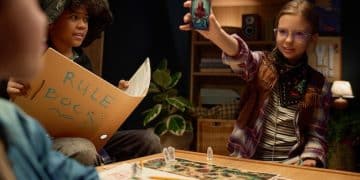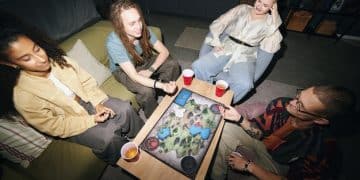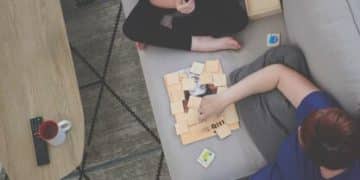From Zero to Hero: Tabletop RPG Character Creation in 3 Weeks
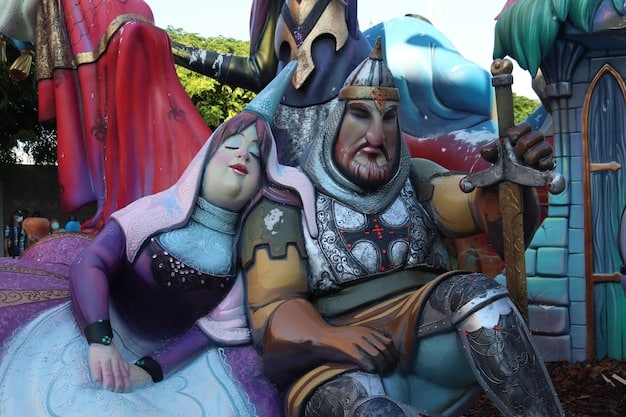
Mastering tabletop RPG character creation in 3 weeks involves understanding core mechanics, crafting compelling backstories, and playtesting, transforming novices into confident role-players.
Embark on an epic journey From Zero to Hero: Mastering Tabletop RPG Character Creation in 3 Weeks! Dive into the immersive world of tabletop role-playing games (RPGs) and learn how to craft compelling characters that will shape unforgettable adventures. Are you ready to begin?
Unveiling the World of Tabletop RPGs
Tabletop RPGs offer an unparalleled level of creative freedom, allowing players to weave intricate stories and embody unique characters. This section provides an overview of tabletop RPGs and their appeal.
What are Tabletop RPGs?
Tabletop RPGs are collaborative storytelling games where players create characters and guide them through adventures, using dice and rulebooks to determine the outcomes of their actions.
Why are They So Popular?
Their popularity stems from the imaginative freedom, social interaction, and strategic gameplay they offer. Players enjoy escaping reality, embodying different personas, and creating their own narratives.

- Creative Freedom: Players can invent their own character backstories, personalities, and motivations.
- Social Interaction: Tabletop RPGs provide a unique opportunity for friends to gather, collaborate, and share experiences.
- Strategic Gameplay: Players must make strategic decisions and adapt to unexpected challenges, enhancing problem-solving skills.
Tabletop RPGs combine creativity and strategy, fostering social bonds and escapism for a diverse community of players.
Week 1: Foundation – Understanding the Core Mechanics
The first week focuses on understanding the fundamental rules and mechanics of your chosen RPG system. This section breaks down the essential steps.
Choose Your RPG System
Selecting the right RPG system is crucial. Popular options include Dungeons & Dragons, Pathfinder, and Call of Cthulhu, each with distinct rules and settings.
Read the Rulebook
Familiarize yourself with the core rulebook. Pay close attention to character creation, skills, combat, and spellcasting rules. This forms the bedrock for character creation.
- System Mechanics: Grasp the basic mechanics like ability scores, skills, and saving throws.
- Combat Rules: Understand how combat works, including initiative, attack rolls, and damage calculation.
- Character Classes: Explore different character classes and their unique abilities and roles.
By the end of the first week, you should have a firm grasp of the RPG system’s core mechanics and rules.
Week 2: Crafting Your Character’s Identity
Week two shifts to character backstory and personality. This involves fleshing out the character’s history, motivations, and personality traits.
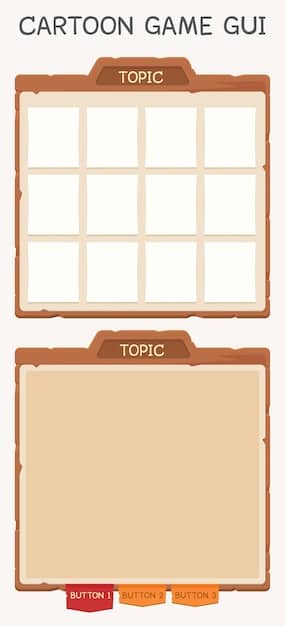
Develop a Compelling Backstory
A well-crafted backstory adds depth to your character. Consider their origins, family, key life events, and motivations. Use guiding questions to help you. What were the key moments that shaped your character? What are their deepest fears and greatest desires?
Define Personality Traits
Personality traits bring your character to life. Choose traits that are both interesting and flawed, such as brave but reckless, or intelligent but arrogant.
- Moral Alignment: Determine your character’s moral alignment (e.g., lawful good, chaotic neutral) to guide their decisions.
- Quirks and Habits: Give your character unique quirks or habits to make them memorable.
- Motivations: Define what drives your character, whether it’s seeking justice, accumulating wealth, or discovering ancient knowledge.
By the end of week two, your character should have a rich backstory and a distinct personality that sets them apart.
Week 3: Playtesting and Refining
The final week is for putting your character into action through playtesting and refining their attributes. This involves participating in practice sessions and tweaking the character based on feedback.
Join a Practice Session
Participate in a practice session with friends or an online group. This will allow you to test your character’s abilities and personality in a real game scenario.
Analyze Performance and Adjust
Analyze your character’s performance during the playtest. Identify areas where they excel and areas that need improvement in strength and in depth. Was your character’s backstory compelling? Did their abilities align with their intended role?
- Skill Optimization: Adjust your character’s skills based on their effectiveness in the playtest.
- Roleplaying Refinement: Refine your character’s personality based on interactions with other players.
- Equipment and Gear: Evaluate the effectiveness of your character’s equipment and make necessary adjustments.
Through playtesting and refinement, you’ll fine-tune your character, making them more engaging and effective.
Advanced Character Creation Techniques
To make your character truly stand out, explore advanced techniques that add depth and nuance. These advanced tips can bring your hero to life.
Multiclassing
Consider multiclassing to create a unique character build. This involves combining classes that have complementary abilities, offering a diverse skill set.
Feats and Talents
Utilize feats and talents to customize your character’s abilities and strengths. These can enhance specific skills or provide entirely new capabilities.
- Synergistic Combinations: Look for feats and talents that work well together, creating powerful combinations.
- Roleplaying Implications: Choose feats and talents that align with your character’s backstory and personality.
- Strategic Impact: Select feats and talents that provide a tactical advantage in combat.
By exploring multiclassing, feats, and talents, you can create a truly unique and powerful custom-made character!
Tips for Roleplaying Your Character
Effective roleplaying brings your character to life and immerses you in the game world. Consider these tips.
Stay True to Your Character
Make decisions that align with your character’s motivations and personality. Avoid actions that contradict their established traits.
Improvise and Adapt
Be prepared to improvise and adapt to unexpected situations. Tabletop RPGs are dynamic, and your character should be flexible.
- Voice and Mannerisms: Develop a unique voice and set of mannerisms for your character.
- Empathy: Put yourself in your character’s shoes and consider their perspective.
- Collaboration: Work with other players and the game master (GM) to create a compelling story.
By staying true to your character, improvising, and collaborating, you can create memorable moments in the game.
Resources for Tabletop RPG Character Creation
Several resources can aid you in creating compelling characters. Online tools and communities can provide valuable assistance.
Online Character Builders
Use online character builders to streamline the character creation process. These tools provide templates, suggestions, and automated calculations.
RPG Communities and Forums
Join RPG communities and forums to exchange ideas, seek advice, and share your character concepts. These communities often provide valuable feedback and inspiration.
- Character Sheets: Download customizable character sheets to track your character’s abilities and progress.
- Reference Guides: Consult reference guides for detailed information on rules, lore, and character options.
- Inspiration Boards: Create inspiration boards with artwork, descriptions, and quotes that capture your character’s essence.
Leverage online tools, communities, and character sheets to enhance your tabletop RPG character creation process.
| Key Point | Brief Description |
|---|---|
| 🎲 Choose RPG System | Select a system like D&D or Pathfinder that suits your play style. |
| 📜 Create Backstory | Develop a compelling backstory to give your character depth and motivation. |
| 🎭 Define Traits | Define personality traits that make your character unique and interesting. |
| 🧪 Playtest & Refine | Test your character in a practice session and refine based on feedback. |
Frequently Asked Questions
▼
Dungeons & Dragons 5th Edition is an excellent choice for beginners due to its streamlined ruleset and extensive online resources. It offers a good balance of complexity and accessibility.
▼
A character’s backstory is crucial for adding depth and motivation. It provides a foundation for their actions and decisions, making them more relatable and engaging in the story.
▼
Avoid creating characters that are too perfect or lacking in flaws. Also, refrain from making choices that contradict the character’s backstory or personality traits, which can create inconsistencies.
▼
Give your character unique quirks, habits, or mannerisms. Develop a distinct voice and personality. Also, focus on their relationships with other characters and how they respond to challenges.
▼
Communicate with the other players and the GM to find ways to integrate your character more effectively. You might need to adjust their personality, motivations, or even aspects of their backstory slightly.
Conclusion
Mastering tabletop RPG character creation in just three weeks is achievable with dedication and the right approach. By understanding core mechanics, crafting compelling backstories, and refining your character through playtesting, you can transform from a novice to a hero. So, roll your dice and embark on your adventure, knowing you have the tools to create characters that truly shine.
